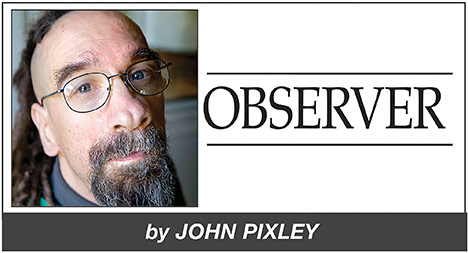CAWA urges residents not to fall for unsubstantiated promises
by Donna Lowe, Claremont Affordable Water Advocates (CAWA)
The control of our water is a debate worth having. Urbanization and population growth places increased demand on all government services. Should government take over the system, by eminent domain, or is there a better way to hold the current provider accountable?
The city council recently placed a $55 million bond on the November ballot, to authorize borrowing of $135 million, which would be repaid by residents in addition to monthly water bills. The $135 million wasn’t widely publicized, but the impartial analysis published by the city clerk includes the total.
Claremont Affordable Water Advocates (CAWA) negotiated a compromise agreement with Golden State Water Company that provides lower water bills and greater local control without the $135 million. During those negotiations, over a period of months, our members demanded facts to support each issue we addressed. Our goal was accountability and transparency, and the compromise agreement delivers both. You can read it for yourself at www.claremontwater.org.
By contrast, the League of Women Voters’ recent article (The Importance of Local Water Control, July 11 COURIER) is long on rhetoric but offers few specifics. The league didn’t note that its study, conducted years ago, assumed a prospective acquisition price of $100 million.
The league’s assertion that a city-run utility would benefit the community because of “better cost control and transparency” is not supported by independent analysis. In fact, the city is spending hundreds of thousands of dollars on private lawyers to reject Public Records Act requests and keep information secret.
The city states that a “certified appraiser” has valued the water system at $56 million, but refuses to disclose financial information regarding what rates would be or how they intend to maintain the wells and pipes.
Moreover, there is no public information about how a takeover would impact other municipal needs. Claremont needs between $40 and $50 million to build a new police station that is outdated. If we borrow $135 million for the water system, will voters approve more debt to fund our police station or other needs? There’s also likely to be a state water bond on the ballot and even a statewide school bond. How does that affect residents? There has been no information on that either.
Facts sometimes contradict political objectives and that is where we are with the water issue. There’s a reason why you aren’t being allowed to vote on the entire $135 million borrowing proposal. The city attorney instructed the council that the $55 million bond was carefully crafted, and specifically recommended that voters not be given a vote on the first $80 million in borrowing. They claim this is because existing water rates may support repayment of the $80 million, again withholding any information that supports the statement.
That’s not how Claremont is supposed to operate. We have always been a community where the all facts are presented, residents have a lively debate and then the votes are counted.
The league’s mention of Felton as an eminent domain success is also curious. The cost to purchase the system was 250 percent more than the government appraisal ($13.4 million vs. $5.3 million) and 670 percent more than the $2 million takeover supporters initially suggested.
Felton residents today are paying $500 every year for 30 years in higher property taxes. The promises of stable rates and local control have also evaporated. The agency that now manages the system has enacted 71 percent in compounded rate increases from 2009 thru 2016. Residents who were told Proposition 218 provided protections against rate increases realized that, even with 2,781 letters of protest, they still were 900 short of the 50 percent requirement. Make no mistake: a repeat of the Felton experience would devastate our local community.
Residents should get to vote on the total $135 million in debt and be told all the costs associated with the takeover effort. But we’re not and that’s wrong.
A better solution is the compromise agreement between CAWA and the water company. Residents get lower water bills and capped rates until 2022, plus local control in the rate-setting process. We don’t need $135 million in debt that will cost each Claremont family tens of thousands of dollars over 30 years to address our water issues.









0 Comments